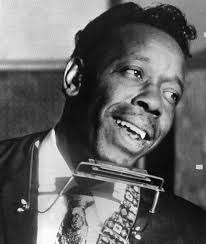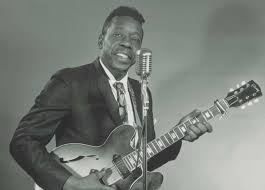Early Life and Roots
Slim Harpo was born James Isaac Moore on January 11, 1924, in Lobdell, Louisiana, just outside Baton Rouge. Orphaned at an early age, Moore was raised by other relatives while working various jobs to make ends meet. Despite his humble beginnings, he found comfort in music and began playing the harmonica as a teenager. He would eventually adopt the stage name “Harp” — a slang term for harmonica — which evolved into “Slim Harpo.”
Musical Beginnings
In the late 1940s, Harpo began performing around Baton Rouge and New Orleans under the name “Harmonica Slim.” To avoid confusion with another performer of the same name, he became Slim Harpo. He played in clubs, juke joints, and on the streets, honing his distinct style — a mix of traditional Delta blues with the rhythms of Louisiana swamp music.
Breakthrough with Excello Records
Slim Harpo’s career took off when he signed with Excello Records in the mid-1950s. His first major hit came in 1957 with the release of “I’m a King Bee,” a raw, minimalist blues number that quickly became a classic. This song, later covered by The Rolling Stones, helped introduce Harpo’s sound to a broader, more diverse audience.
A Signature Style
Harpo’s music was characterized by its laid-back grooves, nasal vocal delivery, and signature harmonica riffs. Unlike many blues artists of the era, Harpo’s music had crossover appeal — his songs were simple, catchy, and rooted in danceable rhythms. This made him especially popular with white audiences and rock musicians during the 1960s.
Success and Influence
His follow-up hits included “Rainin’ in My Heart” (1961) and “Baby Scratch My Back” (1966) — the latter reaching #1 on the R&B chart and breaking into the Billboard Hot 100. Harpo’s music caught the ears of the British Invasion, with bands like The Rolling Stones, The Kinks, and The Yardbirds covering his songs and citing him as a major influence.
Legacy and Impact
Slim Harpo’s blend of blues, rhythm and blues, and swamp rock laid the foundation for what would later influence artists in rock, soul, and modern blues genres. He was one of the few black bluesmen whose music found popularity across racial lines during the Civil Rights era, bridging gaps through the universal language of music.
Influenced Artists Include:
- The Rolling Stones
- Creedence Clearwater Revival
- The Fabulous Thunderbirds
- ZZ Top
- Van Morrison
His laid-back vocal style and emphasis on groove rather than intensity gave blues a different, more introspective flavor. This made his music particularly accessible to younger rock musicians in the UK and America.
Discography Highlights
Here are some of Slim Harpo’s most iconic recordings:
- “I’m a King Bee” (1957) – His first single and a major blues standard.
- “Rainin’ in My Heart” (1961) – A mellow, melancholic tune with crossover success.
- “Buzzin’” (instrumental) – Showcased his harmonica virtuosity.
- “Baby Scratch My Back” (1966) – His biggest hit, a chart-topping R&B groove.
- “Shake Your Hips” (1966) – Covered by The Rolling Stones on Exile on Main St.
Final Years and Death
Despite his success, Harpo remained grounded, working as a building contractor while continuing to record and tour. In early 1970, he was preparing for his first major U.S. tour that would have introduced him to a wider rock audience.
Tragically, Slim Harpo died suddenly of a heart attack on January 31, 1970, at the age of 46. His untimely death cut short a promising second act in his career, but his influence only grew in the years that followed.
Why Slim Harpo Matters
Slim Harpo occupies a unique place in blues history. While not as flashy or as widely known as some of his contemporaries, his subtle power, memorable songs, and cool delivery make him a legend in his own right. Whether you’re a longtime blues aficionado or a new listener just discovering his sound, Slim Harpo’s music offers a deep, rhythmic, and soulful experience that stands the test of time.


Comments are closed